Find a Fellow or Diplomate
News & Events
Test News Update
Testing
The American Academy of Optometry’s Annual Meeting educational offering includes: Lectures & Workshops, Scientific Program, Residents Program and Section & SIG Symposia.
Be one of our 1,000+ Academy presenters and submit your proposal to be a part of the program!
The Lectures & Workshops Committee invites you to participate in the educational program at Academy 2025 Boston by submitting course proposals for consideration!
The Scientific Program Committee invites you to participate in the educational program at Academy 2024 Indianapolis by submitting scientific abstracts for consideration!
The Residents Program Committee invites 2024-25 Residents to submit Grand Round cases for presentation, as either a paper or poster, at Academy 2024 Indianapolis!

Secretary-Treasurer
Dr. Carl Spear completed his undergraduate education at Western Kentucky University and is a 1991 graduate of the University of Alabama School of Optometry at Birmingham. Additionally, Dr. Spear completed a Residency in Primary Care Optometry/Ocular Disease at Northeastern State University College of Optometry, in Tahlequah Oklahoma and earned a Master’s in Business Administration from Auburn University.
Dr. Spear founded and was owner/operator from 1997-2016 of both Sight and Sun Eyeworks and Panhandle Vision Institute, a 14 doctor vertically integrated Optometric/Ophthalmology practice. While growing his own practices, Dr. Spear also worked in a variety of industry settings including:
Currently, Dr. Spear serves as Senior Vice President of Eyecare, Luxottica North America. In addition to lecturing, writing and consulting, Dr. Spear is also active in the following organizations:
In addition to his career in eye care, Dr. Spear has served 39 years in the United States Armed Forces (24 Army and 13 Air Force). Currently, Colonel Spear is serving as the Commander of the 403rd ASTS at Keesler Air Force Base in Biloxi, Mississippi.


President
Dr. Susan Cotter is a Professor at the Southern California College of Optometry at Marshall B Ketchum University, where she teaches students and residents and conducts clinical research. As a pediatric optometrist and clinician-scientist, her primary research interests are related to clinical management strategies for strabismus, amblyopia, convergence insufficiency, and childhood refractive error. She is the co-Chair of the Pediatric Eye Disease Investigator Group (PEDIG), a National Institutes of Health/National Eye Institute (NIH/NEI)-funded clinical research network comprised of 350+ pediatric optometrists and ophthalmologists who perform randomized clinical trials related to pediatric eye disorders. She has also served in leadership positions for the following large-scale NEI-funded studies: the Multi-Ethnic Pediatric Eye Disease Study (MEPEDS), Collaborative Longitudinal Evaluation of Refractive Error (CLEERE), Convergence Insufficiency Treatment Trial (CITT), and CITT-Attention & Reading Trial (CITT-ART).
Dr. Cotter is the President of the American Academy of Optometry, where she is a Diplomate in Pediatric Optometry, Binocular Vision, and Perception. She is a member of the Scientific Bureau of the World Society of Pediatric Ophthalmology and Strabismus (WSPOS) and served as the Co-Chair of the Public Health & Disparities Research Panel for the NEI’s Strategic Plan for the Future (2021-2025).
Sue is the recipient of numerous teaching awards, including the Excellence in Optometric Education Award from the California Optometric Association, Women in Optometry’s Theia Award of Excellence in Education, and Outstanding Faculty of the Year from 18 third-year optometry classes. She is a Fellow of the College of Optometrists in Vision Development (COVD), a past COVD Skeffington awardee, and a past Illinois College of Optometry Alumna of the Year. She is a recipient of the Glenn Fry Medal for Distinguished Achievements in Vision Research from The Ohio State University College of Optometry and the 2019 recipient of the Glenn A. Fry Lecture Award from the American Academy of Optometry.
An Illinois College of Optometry graduate, Dr. Cotter completed a residency in Children’s Vision at SCCO and received an MS in Clinical & Biomedical Investigations from the University of Southern California’s Keck School of Medicine. She has contributed to 200+ peer-reviewed publications, is editor of the textbook Clinical Applications of Prisms, and lectures internationally on pediatric eye care and binocular vision.

Board Member
Dr. Nicholas Colatrella, is the medical director and owner of PineCone Vision Center in Sartell and St Cloud, MN. Dr. Colatrella received his Bachelor of Science degree from Old Dominion University in Norfolk, VA, and his Doctor of Optometry with honors from the Illinois College of Optometry in Chicago. He completed his residency in ocular disease at the Veterans Administration Medical Center in Cleveland, Ohio, and a mini fellowship in Cornea at Northeast Ohio Eye Surgeons. He is board certified by the American Board of Optometry.
Dr. Colatrella is a fellow in the American Academy of Optometry, past Chair of its disease section and a founding chair of the Anterior Segment Section. He was the first of two Diplomates in Anterior Segment Disease of the American Academy of Optometry and a trustee on the American Academy of Optometry Board. He is a member of the American Optometric Association, Past President of the Minnesota Optometric Association, and currently serves on the AOA Third Party Committee as Vice Chair. He has been published several times and lectures nationally on various topics including OSD, dry eye, cataract surgery, pharmacology, corneal diseases and LASIK. He is an adjunct professor for several Colleges of Optometry, and routinely mentors optometry student externs.

Board Member
Dr. Nancy Wong is a staff optometrist at the William G. Hefner VA Medical Center (Salisbury, NC) – Charlotte VA Health Care Center where she currently serves as Director of Optometry Externships. Prior to her appointment at Hefner VAMC, Dr. Wong was a member of the medical staff at VA Hudson Valley Health Care System (Montrose, NY) where she served as Supervisor of the Optometry Residency Program and Coordinator of Research and Development.
Dr. Wong received her OD and PhD from the State University of New York – College of Optometry. She completed a hospital-based optometry residency at the FDR VA Hospital in Montrose, NY. She is board certified in medical optometry by the American Board of Certification in Medical Optometry.
Dr. Wong has previously served as President of the National Association of VA Optometrists. She has been a member of the National Board of Examiners in Optometry Advanced Competence in Medical Optometry Committee and Council. Additionally, she has served on the AAO Fellowship Admittance Committee, including as National Chair. Dr. Wong has authored numerous manuscripts and is a frequent lecturer on topics of ocular disease.

Board Member
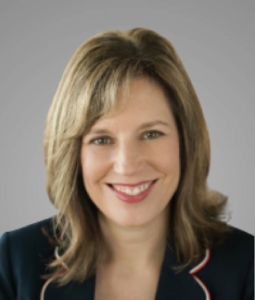
Board Member
Kerry Giedd, OD, MS, FAAO is a founding partner of Eola Eyes, a private group practice in Orlando, Florida, specializing in contact lenses. She graduated with honors from The Ohio State University College of Optometry in 2000 and became a fellow in the American Academy of Optometry in 2003. She serves on the Board of the American Academy of Optometry Foundation and is a former member of the Academy’s Membership Committee. Dr. Giedd has served as a clinical investigator, consultant, and/or speaker for many companies within the vision care industry, including Bausch + Lomb, CooperVision, Johnson & Johnson Vision Care, Alcon, Lentechs, Visus, Eyenovia, Sun Pharmaceutical Industries, Bruder Healthcare, and Allergan. She is a member of the Editorial Board of the publication Primary Care Optometry News and serves on the Board of the Central Florida Lions Club’s Project Right to Sight. Her practice has been nationally and locally recognized as the recipient of many awards, including CooperVision’s Best Practices Award (2015). She has also received many individual accolades, including being named among the nation’s most innovative optometrists (“PCON 250” 2016), one of the most influential women in optical (Vision Monday 2016), and the Small Business Administration’s Women in Business Champion of the Year for the state of Florida (2012). She partners with many local outreach programs to provide eye care for those in need and mentors medical students in her role as an assistant professor at the University of Central Florida College of Medicine. She leads eye care missions to the Dominican Republic and has worked tirelessly to develop an optometry clinic at Grace Medical Home, which provides health care to uninsured residents of her home county.
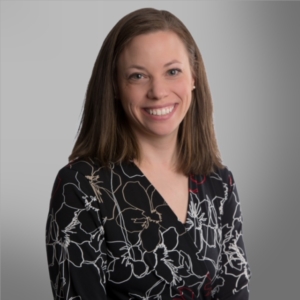
Board Member
Dr. Lindsay Sicks received her optometry degree at the Illinois College of Optometry in 2010. The following year she completed a residency program in Cornea and Contact Lenses at Northeastern State University Oklahoma College of Optometry where she also was able to perform anterior segment laser and minor surgical procedures. Her current role is Associate Professor and attending optometrist for third- and fourth-year interns in the Cornea and Contact Lens Center at the Illinois Eye Institute. She is also involved in the didactic training of students in specialty contact lenses and ophthalmic surgical procedures including injections, minor surgical procedures, and anterior segment laser therapy.
Dr. Sicks is a Fellow of the American Academy of Optometry, International Association of Contact Lens Educators, and Scleral Lens Education Society. She has delivered continuing education and presented research and posters at local and international meetings. Dr. Sicks is Chair of the Faculty-Student Liaison Committee for the American Academy of Optometry and also serves on their Leadership Task Force. She is also a member of the Communications Committee for the Association of Optometric Contact Lens Educators and is a Gallup-certified Strengths Coach. She has received the Dr. Roger Kame award from the AOA Cornea and Contact Lens Section and was named 2022 Contact Lens Educator of the Year (Americas) by the International Association of Contact Lens Educators.

Director At Large, Research Committee Liaison
Dr. Harb earned a joint OD/MS (Vision Science) degree from The New England College of Optometry (NECO) in 2004 where she also completed a residency in Pediatrics. After being on Faculty in the Specialty and Advanced Care Department at NECO for several years, she decided to turn her focus more to building her independence as a Clinician Scientist. She joined the University of California Berkeley School of Optometry K12 funded Clinician Scientist Development Program where he earned her PhD in Vision Science and an MS in Epidemiology/Biostatistics (UC Berkeley School of Public Health). She currently is a Clinician Scientist at the Herbert Wertheim School of Optometry at UC Berkeley, the PI of the Childhood Activity and Myopia (CAM) Study (NEI K23 funded) and sees pediatric patients at UC San Francisco’s Benioff Children’s Hospital. She is an Assistant Clinical Professor at the UCSF School of Medicine and serves as the Chair of the AAO Research Committee

Immediate Past President
Timothy T. McMahon, OD, FAAO graduated from Illinois College of Optometry in 1980, and completed a residency at the Kansas City Veterans Administration Medical Center in 1981. From 1981 to 2010 Dr. McMahon was a faculty member at the University of Illinois at Chicago in the Department of Ophthalmology and Visual Sciences and currently holds the rank of Professor of Ophthalmology. From 2010 through 2011 he served as the Associate Director for Clinical Affairs, Professor of Optometry and Optometrist-in-Chief at the University of Waterloo, School of Optometry in Waterloo, Ontario, Canada. He returned to the UIC Department of Ophthalmology & Visual Sciences in late 2011 and holds the rank of Professor of Ophthalmology. In 2013 he received Board Certification in Medical Optometry by the American Board of Certification in Medical Optometry. In 2014 he was appointed Vice Chair for Optometry in the Department of Ophthalmology & Visual Sciences at UIC.
He is a Fellow of the American Academy of Optometry and is a Diplomate in the Section on Cornea, Contact Lenses and Refractive Technologies. He previously served as Chair of the Academy’s Research Committee and Vice Chair of the Academy’s Scientific Program Committee and for 10 years served as a member of the AOA’s Council on Research. Dr. McMahon was appointed to the American Academy Optometric Foundation Board in 2002 and served as its treasurer until 2008 when he was elected to serve as a member of the Board of Directors of the American Academy of Optometry. In 2020 he was elected President of the Academy the office which he currently serves.
Dr. McMahon was the Secretary of the LRS Committee of the World Council of Optometry from 2012 to 2016 following which he was elected President of the World Optometry Foundation. For more than 10 years he served on the editorial board for the journals Cornea and Eye and Contact Lens. In 2000 the National Academies of Practice named him a Distinguished Clinical Fellow. Dr. McMahon has been an investigator or principal investigator for several NIH and VA funded research projects, including the CLEK Study, where he served on the Executive Committee. From 2001 to 2005 he served on the FDA Ophthalmic Devices Panel and remains a consultant. He has published widely and has lectured nationally and internationally. His interests include contact lenses, corneal topography and anterior segment diseases.
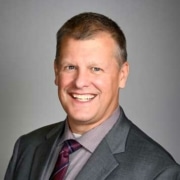
President-Elect
Dr. Walline the Associate Dean for Research at The OSU College of Optometry, where he teaches Introduction to Primary Care Procedures to optometry students and Clinical Research Design and Basics of Graduate Work to graduate students. Dr. Walline is a Research Diplomate in the Cornea, Contact Lens, and Refractive Technologies Section. Dr. Walline served on the Communications Committee, he was vice chair of the Scientific Program Committee, and he chaired the Faculty-Student Liaison Committee. Since serving as the National Liaison to the Academy for the American Optometric Student Association, Dr. Walline has passionately served the Academy because he understands the importance of educating optometrists through innovative science and cooperative fellowship.
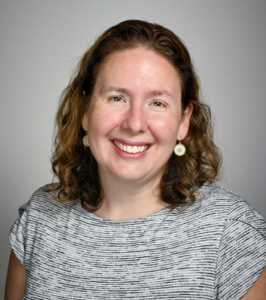
Immediate Past President
Wendy Harrison, OD, PhD, FAAO, is a graduate from the Indiana University (IU) School of Optometry where she was the first person to earn a joint OD, MS degree in 4 years. She completed her residency in Cornea, Contact Lenses also at IU and a PhD in Vision Science in 2011 from University of California, Berkeley. Dr. Harrison is currently an Associate Professor at the University of Houston College of Optometry where her clinical and research interest involves electrophysiology in diabetes and other retinal diseases. She is a member of the AAOs Fellow’s Doing Research SIG Steering Committee. Dr. Harrison is an AAOF Presidents Circle Member and two time recipient of the Foundation’s prestigious William C. Ezell Fellowship and was also honored to receive the George Mertz Contact Lens Residency Award.

President
Rachel A. “Stacey” Coulter, OD, MS received her doctor of optometry degree in 1991 from the Pennsylvania College of Optometry (PCO), completed a residency in Pediatric Optometry at PCO in 1992, and received an MS degree in education from Nova Southeastern University (NSU) in 2012. Currently, Dr. Coulter is a Professor of Optometry at NSU where she teaches in the classroom, clinic, and residency program and is active in clinical research. In 2021, she was named Professor of the Year for NSU’s College of Optometry. Dr. Coulter has a career-long interest in vision and its link to child development and learning. She served as Principal Investigator for the CITT and CITT-ART clinical trials and has completed multiple research studies in pediatric vision and vision in autism.
In the AAO, Dr. Coulter is a Diplomate and past Chair of the Binocular Vision, Perception, & Pediatric Optometry Section. She is an AAOF President’s Circle Member. Dr. Coulter is active in multiple other optometric organizations. She serves on the Board of Directors for COVD and the Advisory Committee of the National Center for Children’s Vision and Eye Health of Prevent Blindness. She also is a Distinguished Practitioner of the National Academies of Practice. She is a frequent presenter and has lectured throughout the United States, as well as the United Kingdom, China and India. Dr. Coulter is the 2016 recipient of the American Academy of Optometry’s Feinbloom Award for distinguished and significant contribution to clinical excellence.
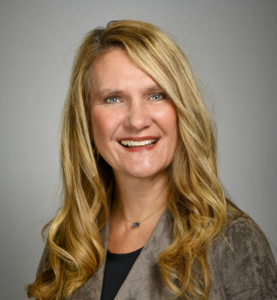
Secretary-Treasurer
Dr. Loretta Szczotka-Flynn is Professor at Case Western Reserve University (CWRU) in the Departments of Ophthalmology & Visual Sciences as well as Population and Quantitative Health Sciences. She is Director of the Contact Lens Service at the University Hospitals Case Medical Center in Cleveland, Ohio since 1992. She received her Doctorate of Optometry and Masters of Physiological Optics from The Ohio State University in 1992, and her PhD in Epidemiology from Case Western Reserve University in 2010. She is a Diplomate and Past Chair of the Section on Cornea, Contact Lenses and Refractive Technologies of the American Academy of Optometry and currently serves on the Board of the American Academy of Optometry Foundation. Dr. Szczotka-Flynn serves as an Associate Editor for Eye & Contact Lens and a guest editor for Optometry and Vision Science after having served on the OVS Editorial Board for 12 years. She has authored or co-authored ~80 peer reviewed manuscripts, 12 book chapters, 100 scientific meeting abstracts, and has presented about 200 presentations world-wide.
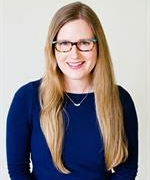
President-Elect
Dr. Sharpe received her Doctor of Optometry degree from the Indiana University School of Optometry. She completed her residency in ocular disease at the Veteran’s hospital in Portland, Oregon affiliated with OHSU and Pacific University. She is a fellow of the American Academy of Optometry and board certified by the American Board of Certification in Medical Optometry. Since 2004 she has served as medical staff at Chinle Hospital, a Navajo Area Indian Health Service facility in Arizona. She is a recipient of the Lester Caplan Award recognizing accomplishments for the Public Health Service. She is committed to serving within her profession and has held various national leadership roles as a national board examiner, national advisory group (OPAG) member for the Indian Health Service, and she is currently a Vice Chair on the admissions committee for the American Academy of Optometry as well as a board member of the American Academy of Optometry Foundation. She has held Adjunct Clinical Professor positions at the Pacific University College of Optometry, the Southern California College of Optometry, The Ohio State University, and Indiana University. Outside of her optometric duties Dr. Sharpe is involved in clinical informatics where she supports management of the electronic medical record as well as telemedicine initiatives.
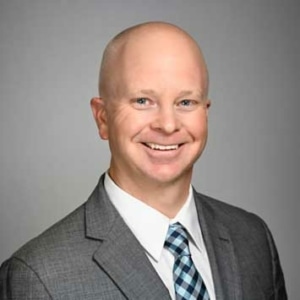
Director At Large, Academy Liaison
Dr. Mick graduated from the University of Michigan in 1997 and the University of California Berkeley School of Optometry in 2001. He completed an ocular disease optometric residency at the Bascom Palmer Eye Institute in 2002. Dr. Mick is a Staff Optometrist at the San Francisco VA Medical Center where he is the current Residency Coordinator and Co-Consultant to the national VA Optometry Service for VISN 21. He has previously been a Consultant for the Accreditation Council on Optometric Education and an Examiner for the National Board of Examiners in Optometry. Dr. Mick has served on the Membership Committee, Scientific Program Committee, and Awards Committee of the American Academy of Optometry. He is a former Associate Editor for the Academy’s journal Optometry and Vision Science. Dr. Mick is an Associate Clinical Professor at the University of California Berkeley School of Optometry.

Board Member
Dave Sattler, FAAO began his career with Alcon in 1986 as a Sales Representative for the Vision Care Group based out of San Diego, CA. While living in Southern California, he held a number of positions with increasing responsibility including Regional Broker Manager, National Account Manager, and District Sales Manager. In 1991, Dave relocated to Texas and became the Director of National Accounts for Alcon and was later promoted to the Director of Professional Relations. After 28 years of service, Dave retired from Alcon in 2014 as the Director of Academic Development. He is now running his own consulting business and serves on a number of boards including the American Academy of Optometry Foundation and the Southern College of Optometry. He previously served 8 years as a board member for Optometry Cares, the American Optometric Association Foundation. Dave and his wife Denise reside in Colleyville, Texas. They have three grown daughters and three grandchildren.
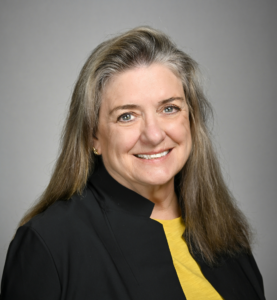
Board Member
Danne is an A.B.O. optician, N.C.L.E. contact lens fitter, J.C.A.H.P.O. ophthalmic medical assistant and Fellow in the American Academy of Optometry. Her recent corporate focus with Essilor of America was on school support, student and institutional grants, creating and implementing student events and student and faculty education.
Her many awards include the National Federation of Opticianry Schools Person of the Year Award; 3 time Jobson Publishing Most Influential Women in Optical; the ATPO (Association of Technical Personnel in Ophthalmology) President’s Award; JCAHPO (Joint Commission of Allied Health Personnel in Ophthalmology) Statesmanship Award; Optical Women’s Association Pleiades Award; and was inducted into the National Academy of Opticianry Hall of Fame in 2013.
She is past-president of The National Academy of Opticianry, served on the Board of Directors, Joint Commission on Allied Health Personnel in Ophthalmology Education and Research Foundation, Commission on Opticianry Education, Advisory Board, New York City Technical College, Brooklyn, New York Ophthalmic Dispensing Program, Advisory Board, Essex County College, Newark, New Jersey Ophthalmic Dispensing Program, Advisory Board, International Academy of Sports Vision, Advisory Board, EyeQuest Conference, and was Chairman, Associate Member Relations, Opticians Association of America.
Danne was with Essilor of America for 29 years and retired in 2018. Her most recent position was Director of Professional Education. She is a President’s Circle member of the AAOF.
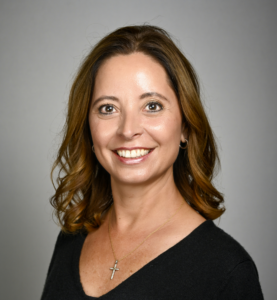
Board Member
Dr. April Jasper graduated from Nova Southeastern University College of Optometry with highest honors in 1995. Her family of six (awesome husband, two beautiful children, and two dogs) live in West Palm Beach, Florida. Dr. Jasper completed her residency in primary care, ocular disease and contact lenses in Boston, Massachusetts where she also held a position as adjunct professor at NEWENCO. Dr. Jasper has served her patients and colleagues as president of the Florida Optometric Association 2016-2017. She continues to share her knowledge and expertise around the world authoring numerous publications, lecturing and as chief editor of Optometric Management magazine.
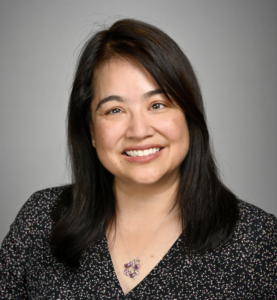
Board Member
Dr. Mika Moy graduated from UC Berkeley School of Optometry and completed a residency in Pediatrics and Cornea/Contact Lenses there. She is the Associate Dean for Admissions and Student Affairs at Berkeley Optometry where she teaches the Anterior Segment Disease course and is a clinical instructor as well as a mentor for the Primary Care and Pediatric residents. Her clinical interests include anterior segment disease, pediatrics, and neuro-optometry and she is a frequent lecturer nationally and internationally. She is a Diplomate and current Chair of the Anterior Segment Section and was presented the Michael G. Harris Family Award for excellence in optometric education by the American Academy of Optometry Foundation. She is a Board Member of the California Optometric Association. In her spare time, she enjoys cooking, embroidery, and breaking out of escape rooms with her husband and teenage children.
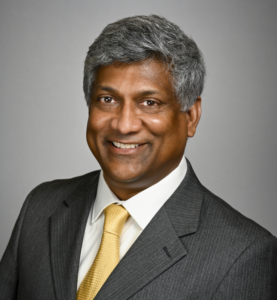
Board Member
Dr. Suresh Viswanthan is currently the Chair of the Department of Biological and Vision Science at the State University of New York College of Optometry where he also serves as the Director of Institutional Research. He earned his Optometry degree from India and subsequently an MS degree from Pacific University and a PhD in Vision Science from the University of Houston. Prior to his move to New York Dr. Viswanathan was a faculty member at the Indiana University School of Optometry. Currently Dr. Viswanathan also serves as the chair of the research pillar of the Academy’s Strategic Plan Implementation Committee and as the Academy’s representative on the National Alliance for Eye and Vision Research/Alliance for Eye and Vision Research professional society member council. Previously he has served as the Chair of Academy’s Scientific Program Committee, Vision Science SIG and as a member of the Academy’s Awards and Admittance Committees. As a graduate student, Dr. Viswanathan was awarded the Ezell fellowship for three consecutive years. He became a fellow for the American Academy of Optometry in 2000 and is an ardent supporter of AAOF.
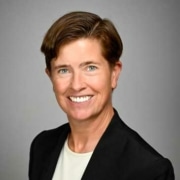
Board Member
Dr. Chris Wilmer attended the University of California Santa Cruz and the University of California Berkeley School of Optometry. She completed a residency program in Primary Care Optometry at the San Francisco VA Medical Center. She is currently the Associate Dean for Clinical Affairs and a Health Sciences Clinical Professor at the UC Berkeley School of Optometry. She has been involved in residency education throughout her academic career as the Chief Mentor of the Primary Care and Contact Lens residency program and currently serves as the Director of Affiliate Residency Programs. Dr. Wilmer lectures locally, regionally and nationally on a number of topics. She has been involved with section leadership within the AAO and has previously served as the Chair of the Anterior Segment Section and she most recently served as the Diplomate Written Exam Chair. She has been involved in the National Board of Examiners Part 1 Committee and Council for many years and currently is a member of the Part III Exam Development Committee.
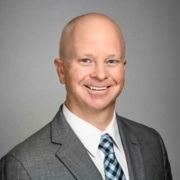
Board Member
Dr. Mick graduated from the University of Michigan in 1997 and the University of California Berkeley School of Optometry in 2001. He completed an ocular disease optometric residency at the Bascom Palmer Eye Institute in 2002. Dr. Mick is a Staff Optometrist at the San Francisco VA Medical Center where he is the current Residency Coordinator and Co-Consultant to the national VA Optometry Service for VISN 21. He has previously been a Consultant for the Accreditation Council on Optometric Education and an Examiner for the National Board of Examiners in Optometry. Dr. Mick has served on the Membership Committee, Scientific Program Committee, and Awards Committee of the American Academy of Optometry. He is a former Associate Editor for the Academy’s journal Optometry and Vision Science. Dr. Mick is an Associate Clinical Professor at the University of California Berkeley School of Optometry.
